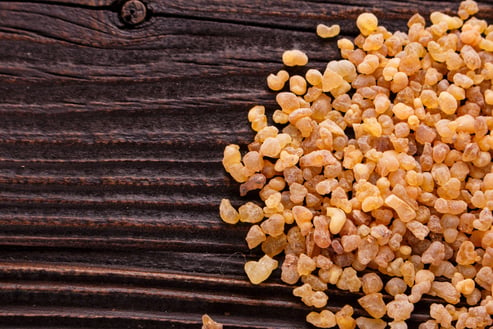-
Ingredient SolutionsQuickly narrow your search. Browse products in our sortable catalog. View Catalog
-
ApplicationsQuickly narrow your search. Browse products in our sortable catalog. View Catalog
-
ResourcesRecently Posted
-
PLT People & Planet
-
About
Our international network, passionate team of experts and extensive industry knowledge is what sets us apart.
 Seth FlowermanCEO
Seth FlowermanCEO
Cellular and molecular mechanisms of anti-inflammatory effect of Aflapin®: a novel Boswellia serrata extract

Cellular and molecular mechanisms of anti-inflammatory effect of Aflapin: a novel Boswellia serrata extract
Krishanu Sengupta, Jayaprakash N. Kolla, Alluri V. Krishnaraju, Nandini Yalamanchili, Chirravuri V. Rao, Trimurtulu Golakoti,
Smriti Raychaudhuri, Siba P. Raychaudhuri
(2011) MOLECULAR AND CELLULAR BIOCHEMISTRY. 354. 189-97. 10.1007/s11010-011-0818-1.
Abstract
There is significant number of evidences suggesting the anti-inflammatory properties of gum resin extracts of Boswellia serrata containing 3-O-acetyl-11-ketob- boswellic acid (AKBA) and their promising potential as therapeutic interventions against inflammatory diseases such as osteoarthritis (OA). Unfortunately, the poor bioavailability of AKBA following oral administration might limit the anti-inflammatory efficacy of standardized Boswellia extract(s). To address this issue, we describe a novel composition called Aflapin, which contains B. serrata extract enriched in AKBA and non-volatile oil portion of B. serrata gum resin. Our observations show that the availability of AKBA in systemic circulation of experimental animals is increased by 51.78% in Aflapin-supplemented animals, in comparison with that of 30% AKBA standardized extract or BE-30 (5-Loxin). Consistently, Aflapin confers better antiinflammatory efficacy in Freund’s Complete Adjuvant (FCA)-induced inflammation model of Sprague–Dawley rats. Interestingly, in comparison with BE-30, Aflapin also provides significantly better protection from IL-1b-induced death of human primary chondrocytes and improves glycosaminoglycans production in human chondrocytes. In Tumor necrosis factor alpha (TNFa)-induced human synovial cells, the inhibitory potential of Aflapin (IC50 44.736 ng/ml) on matrix metalloproteinase-3 (MMP-3) production is 14.83% better than that of BE-30 (IC50 52.528 ng/ml). In summary, our observations collectively suggest that both the Boswellia products, BE-30 (5-Loxin) and Aflapin, exhibit powerful anti-inflammatory efficacy and anti-arthritic potential. In particular, in comparison with BE-30, Aflapin provides more potential benefits in recovering articular cartilage damage or protection from proteolytic degradation due to inflammatory insult in arthritis such as osteoarthritis or rheumatoid arthritis.














